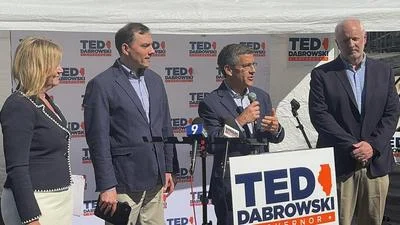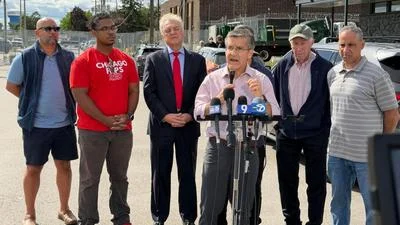Gov. J.B. Pritzker
Gov. J.B. Pritzker
While state Democrat lawmakers were determined to move forward on one of Gov. J.B. Pritzker’s biggest campaign promises – raising the minimum wage– Sam Toia, president and CEO of the Illinois Restaurant Association (IRA), said he steeled himself to do all he could to soften the blow.
“An increase in the minimum wage is a bitter pill for any business owner to swallow,” Toia told the Prairie State Wire. “The IRA worked to protect the tip credit, extend the implementation period over six years to 2025 and (promote) other key concessions in the final bill in order to alleviate pressure on restaurants around the state.”
Some Republicans openly fear if those measures will be enough to save the jobs potentially impacted by the legislation passed by the House on Feb. 14 and signed into law by Pritzker a few days later.

Sam Toia
Toia said he wishes those who pushed so hard for the proposal would see the big picture where his industry in concerned.
“The restaurant industry is the largest private sector employer in Illinois – with 577,000 people employed around the state,” he said. “We need pragmatic public policies at the local, state and federal levels that will allow for continued growth in the industry.”
The minimum wage law Pritzker signed earlier this month calls for the minimum wage in Illinois to increase in increments to $15 an hour by 2025.
The first increase, to $9.25, is slated to kick in on Jan. 1, followed by a hike to $10 by July 1 and then increases of $1 per hour each year on Jan. 1 until hitting $15 in 2025. Currently, the federal minimum wage stands at $7.25 an hour.
Toia said he is hopes that the IRA and others continue to fight for the preservation of the tip credit, which allows employers to count tips toward wages, as that could prove to be a saving grace for some business owners.
“Higher labor costs are a challenge for any business, which is why protecting the tip credit, rolling out the increase over a longer period and establishing tax credits for small employers are all essential to ensure a smoother transition that will maintain the vitality of the restaurant industry,” he said.






 Alerts Sign-up
Alerts Sign-up